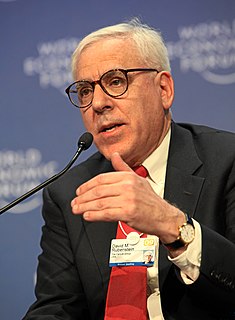A Quote by Donald Knuth
To me, it looks more or less like the hardware designers have run out of ideas and that they're trying to pass the blame for the future demise of Moore's Law to the software writers by giving us machines that work faster only on a few key benchmarks!
Related Quotes
Gates has always understood Moore's Law better than anyone else in the industry. If you can make something run at all, get it out there -it may be slow and clunky, but hardware improvements will bail you out. If you wait until it's running perfectly on the hardware already in the field, it will be obsolete before it's released. This philosophy built Microsoft and is the main reason Microsoft won the war IBM declared back in the OS/2 days.
Machines help us do things more quickly and efficiently, but they can also destroy some community activities. Machines can also throw the weakest people out of work and this would be sad, because their small contribution to the housework or cooking is their way of giving something to the community. People who are capable of doing things very quickly with the help of machines become tremendously busy, always active, in charge of everyone - a bit like machines themselves.
All I'm doing is I'm filling out my tax returns - or my accountants are, and I'm paying whatever I'm supposed to pay, though I'm giving away a large amount of the money and that probably lowers my tax rate because I'm giving away so much money. But change the law, but don't blame me for the law. I'm not writing the law. I didn't write the law.
With software products, it is usual to find that the software has major `bugs' and does not work reliably for some users... The lay public, familiar with only a few incidents of software failure, may regard them as exceptions caused by exceptionally inept programmers. Those of us who are software professionals know better; the most competent programmers in the world cannot avoid such problems.




































